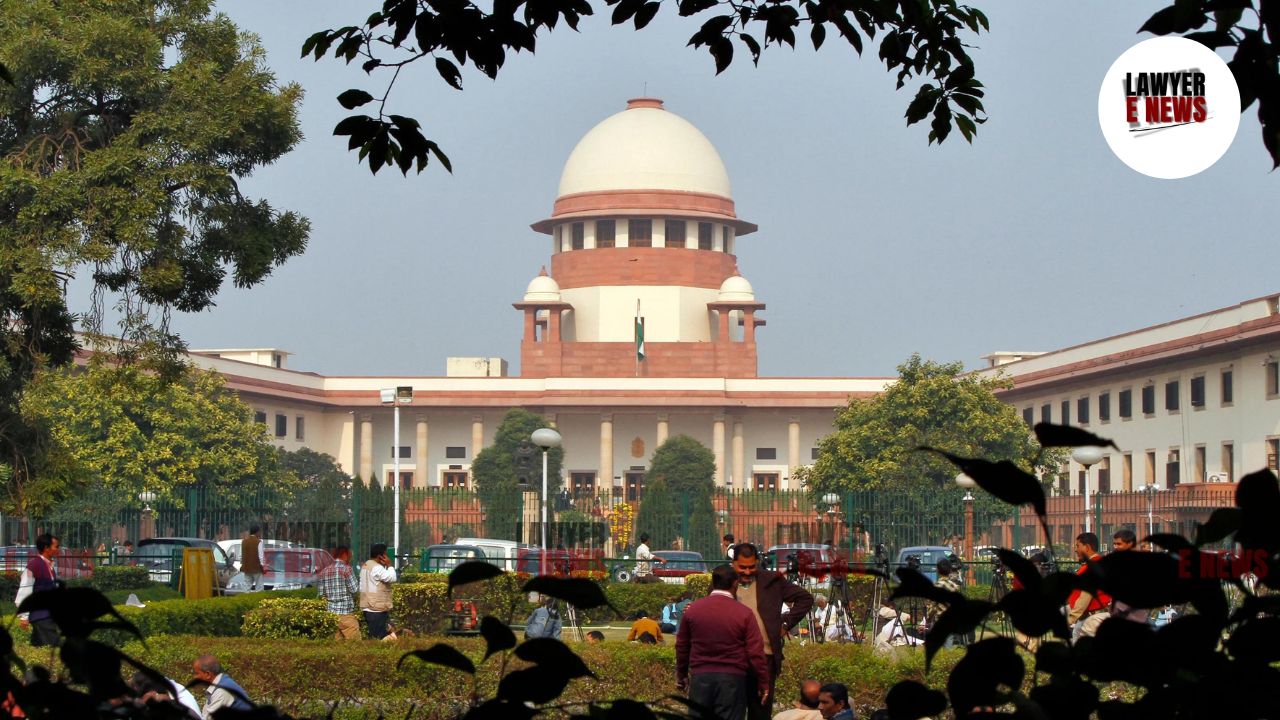-
by Admin
15 February 2026 2:16 AM



Supreme Court of India delivered a judgment in IDBI Bank Ltd. vs. Ramswaroop Daliya & Ors., dismissing IDBI Bank’s appeal against the High Court's decision. The case revolved around the cancellation of an auction by IDBI Bank, after the respondents had won the auction but were unable to pay the balance sale consideration on time. The Court ruled in favor of the respondents, holding that the failure to deposit the balance amount within the stipulated time was not due to the auction purchaser’s default, but rather due to circumstances caused by the bank.
IDBI Bank had auctioned a property located in Bogaram village, Telangana, pursuant to an e-auction notice on March 17, 2018. The auction took place on April 10, 2018, where the respondents became the highest bidders, depositing 25% of the bid amount. However, issues arose when IDBI Bank refused to accept the balance sale consideration within the 15-day period, leading to the cancellation of the auction on December 24, 2019, and a refund of the deposited amount.
The respondents filed a writ petition before the High Court, challenging the cancellation and seeking the issuance of a sale certificate upon payment of the remaining amount. The High Court ruled in their favor, prompting IDBI Bank to appeal to the Supreme Court.
The primary legal issue was whether the respondents had defaulted in depositing the balance sale consideration within the time prescribed by Rule 9(4) of the Security Interest (Enforcement) Rules, 2002, and whether the appellant bank was justified in cancelling the auction sale.
The Supreme Court analyzed the application of Rule 9(4), which requires the balance of the purchase price to be paid within 15 days or an extended period agreed upon in writing between the parties, not exceeding three months. The Court acknowledged that the respondents sought extensions due to the appellant’s refusal to accept the amount, which was influenced by an advisory from the Enforcement Directorate (ED) and a writ petition by one of the guarantors.
The Court also highlighted the fact that IDBI Bank, despite knowing about the investigation by the Central Bureau of Investigation (CBI) and the advisory by the ED, went ahead with the auction without disclosing these facts in the advertisement. This concealed information played a pivotal role in the subsequent refusal to issue the sale certificate.
The Supreme Court held that the failure to deposit the balance amount was not attributable to the respondents, but rather to the bank’s refusal to accept it. The Court noted that the appellant-Bank had issued the e-auction notice after making a complaint to the CBI but failed to disclose this in the auction notice.
Importantly, the Court referred to Rule 9(4) and observed that the period for depositing the balance amount is not sacrosanct and can be extended with written consent. The Court clarified that the appellant-Bank could not cancel the auction sale without giving the respondents notice or an opportunity to be heard, thereby violating principles of natural justice. The cancellation was deemed illegal and unilateral.
The Supreme Court rejected the appellant’s reliance on Union Bank of India v. Rajat Infrastructure Pvt. Ltd., which involved a strict interpretation of Rule 9(4). The Court distinguished the case at hand by noting that the respondents were not at fault, and the period for deposit could have been extended.
The Supreme Court upheld the High Court's order directing IDBI Bank to issue the sale certificate and execute the sale deed after accepting the balance auction amount from the respondents. It dismissed the appeal, emphasizing that the failure to deposit the balance amount on time was not due to the respondents’ negligence or default.
Date of Decision: October 16, 2024
IDBI Bank Ltd. vs. Ramswaroop Daliya & Ors.
